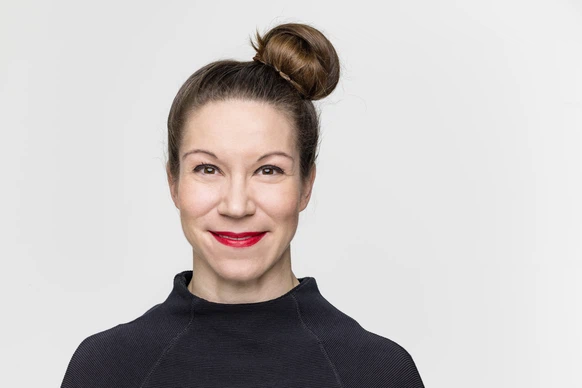Photo: shutterstock
MoneyTalks
A little coin here, an order there… It never seems like much and yet it makes a huge difference. What you should know about the power of small amounts and how to use them.
Did you know that many people think it takes a lot of money to invest? Or what is the biggest waste of money in everyday life? Here are some facts and figures about the power of small amounts when investing and spending and how you can easily avoid the most common “wasting money”.
A study by BNY Mellon (The Road to Inclusive Investing, 2021) shows that women in Switzerland, for example, believe they need around CHF64,000 in annual disposable income before they consider investing. The world average annual disposable income was 48,000 francs. With modern financial instruments, you can now start with much smaller amounts, for example with ETFs or with circular investing, where you can round up to the next franc when you pay and invest this currency.
Even small quantities have power
Even small amounts add up, here are two illustrative examples:
- For example, if someone invests 2 Swiss francs per day (60 francs per month) and makes an average return of 5% per year, then in 15 years this will be 15,900 Swiss francs.
- For your pension: If you started saving 30 francs a month at age 20, a portion every day, then you could have an extra 59,000 francs in your pocket when you retire. (All numbers were calculated using the Moneyland Yield Calculator, excluding inflation.)
Advantages Small amounts of investment:
- You can start with a manageable risk, try it and gain experience.
- You can easily put all this into your everyday life like an autopilot.
- Even small successes increase your motivation.
Negatives:
- Investments are subject to volatility (as we are seeing now).
- You need the right tools for a low fee.
If you do not want to invest but are having trouble saving a certain amount, this method can also help you, for example by activating the savings rounding function in electronic banking and thus automatically accumulating funds step by step over time. Another option is to use cashback cards, which pay off an amount of sales. You also have to pay attention to costs here. Regardless of the method, small wins are also very motivating when it comes to money management, which can give you the energy to reach your goal faster.
You must know these 6 money wasters
Especially now, when inflation and falling investment prices are tightening our wallets and pensions, good money hygiene is worth it to avoid wasting money. Over-consumption of unnecessary money is an expense that does not create any added value and does not contribute to livelihood or well-being, but often costs you unnoticed, for example:
- Online Subscriptions: Since the pandemic has made everything more digital, unused online subscriptions have been the #1 spending so much money going unnoticed. In the US, reports from “USA Today” show that people are spending about CHF260 a month on online subscriptions in 2021, 3 times what they initially planned. There are now apps that cancel unwanted or unused subscriptions for a fee (!) (like Mint Premium). It’s best to think about it when you buy it or browse your cell phone every 2-3 months.
- Costs for credit cards and withdrawals abroad: Vacation time will soon come and we can travel again, paying close attention to credit card fees and purchase costs as well as the costs of paying abroad. It is better to use a prepaid debit card so that no interest is charged and the cost of payments abroad is checked. Be aware, with cheap providers, there may also be fees for withdrawing cash from ATMs in Switzerland – so check what you’re paying for and, if necessary, look for alternatives.
- Paperwork that costs more: Additional fees are often charged for paper bills, receipts, and the like. The 1.80 francs are quickly added here and there. Check at the post office the costs and switch to the digital system when necessary.
- Packages and Annual Solutions: It’s always great to get something cheaper and be able to use it for a year, but will you need the 12-month service or do you need everything in the “package”? Often the cheap package is rather expensive. It is best to try it with a test or a monthly subscription, which you can always extend.
- Late payment of bills: Most now cost extra reminder fees and late fees, and better pay on time.
- Impulse Purchases and Returns: You bought something and it never arrived due to delivery jams? Cancellation must be possible. Did you buy something that looked great, had to pay up front and it turned out to be junk? – defend! With all of these online purchases, always check what’s possible before inserting your card. Once it has been paid for and possibly arrived, it becomes more difficult to return or cancel it and the more likely it is that our comfort will be better than ours.
In addition to those consuming a lot of money, there are many other charges such as unnecessary bank charges, energy costs, transportation costs and many more. Going over budget and cell phone once a month will help avoid all of that and make room for new things. In the TEDx Talk “How to Buy Happiness,” sociologist and Professor Michael Norton explains how money can make you happier: If we spend it on others and on experiences, it should increase our productivity—the inspiration for which no online subscription is necessary 😊.
How do you deal with wasteful and small amounts? Tips?
Great savings tips for anyone? These 17 people know how to do it
10 Savings Tips For Your Apartment Share You Can Save Yourself Safely
Video: Watson / Knackipole, Madeleine Siegrist, Leah Saxer

Photo: zvg
Olga Miller …
This may also interest you:
Anyone who takes out a mortgage should go deeper into their portfolio than they did a year ago. Interest rates are at their highest since 2011 – and are likely to become more expensive. Half the population wants comfortable financing standards.
Mortgage rates go up and up. According to comparison service Moneyland, interest rates have “more than doubled” since January A message from Tuesday means. Specifically, the average interest rate on five-year mortgages is now 2.57 percent and 2.99 percent for 10 years.
For comparison: On January 1, 2022, fixed-rate mortgages were still available averaging 1.01 percent for five years and 1.26 percent for ten years.

“Tv expert. Hardcore creator. Extreme music fan. Lifelong twitter geek. Certified travel enthusiast. Baconaholic. Pop culture nerd. Reader. Freelance student.”







More Stories
USA: It is clear that the economy is losing momentum at the beginning of the year
Chocolate storm in Türkiye – the Swiss are confused
Big Topics at New UBS's First General Meeting – News